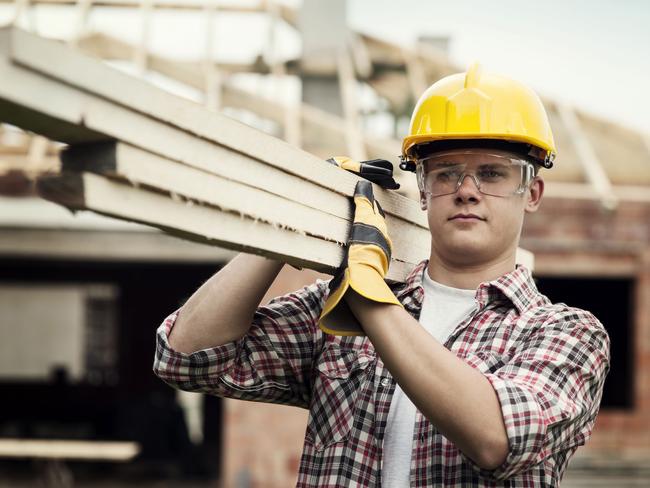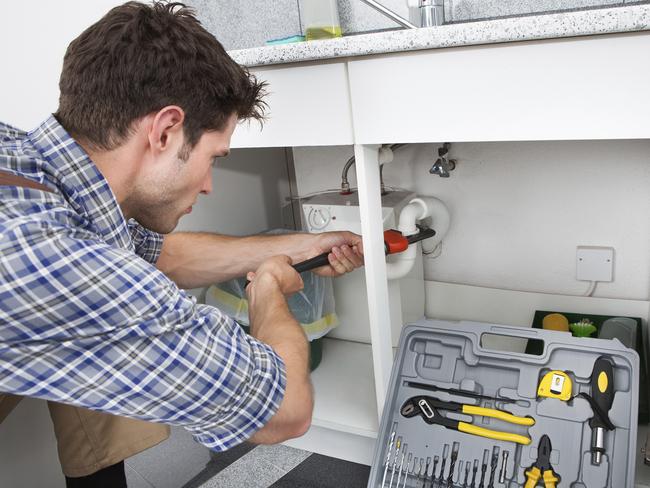New technology threatens Australia’s low-skill tradesmen who are upskilling to be irreplacable
AS hi-tech robots and technology threaten to take jobs away, these Australians are being forced to get higher level qualifications to ensure they are irreplaceable.

NEW technology is encouraging a more highly qualified construction industry, with the number of workers holding diplomas and advanced diplomas roughly tripling in 30 years.
While lower qualified tradespeople and labourers barely increased by 50 per cent in that time, according to ABS figures.
Construction Skills Queensland director of evidence and data Robert Sobyra said technology was a major catalyst for the workforce’s shift.
“As more and more sophisticated technologies and processes have been introduced on construction sites, workers have needed higher and higher levels of training,” he said.
“For technology to drive productivity, there needs to be people who can drive the technology hence the importance of skills development. No productivity gains can come from a construction site full of cutting-edge machinery that no one can operate.”
Mr Sobyra said CSQ and CSIRO’s The Farside Project, which is currently underway, had already found strong signs the trend would continue.
TAKE THE LEAP: Jobs for thrillseekers
MORE: Why your CV won’t get you a job

“Technological disruption is likely to speed up significantly over the next 20 years, rewriting the very DNA of the construction industry in terms of robotics, advanced materials and off-site fabrication,” he said.
Research suggests lower-skilled construction jobs, such as glaziers, plasterers and tilers, face a high risk of being automated.
Mr Sobyra suggested jobs that were repetitive and heavy on rigid procedure would be delegated to machines and this trend would be accelerated if prefabrication became more common as the process lent itself to robotics.
He said the construction workforce wouldn’t necessarily be slashed but rather the jobs would be unrecognisable compared to today.
“We expect the emphasis to shift from skill sets focused on manual dexterity and physical labour to skill sets focused on the intelligent and precise use of technology,” he said.
“Machines will not do the work alone, they will require humans to point them in the right directions, to at least identify the problems that need solving.

“Where once it was enough to find someone good with their hands, future employers will be looking for people who are good with their keyboards and good with their words.”
Master Builders Australia chief executive Wilhelm Harnisch said technological advancement was significantly driven by high labour costs but the training system had not yet not caught up with the technology.
“The training system needs to be more industry-driven to ensure the curriculum is adapted to better meet industry needs,” he said.
Plumber James Sharvell completed his certificate IV through TAFE Queensland SkillsTech last year and plans to upskill with a diploma in 2017.
“The certificate IV was pretty technical but the diploma will basically be the engineering side to everything so I’ll be able to look at plumbing in a different way,” he said.
“Hopefully the diploma won’t just make me irreplaceable (in the face of automation) but broaden my knowledge in all types of plumbing.”
For more employment news, read the CareerOne section in Saturday’s News Corp Australia metropolitan newspapers.



